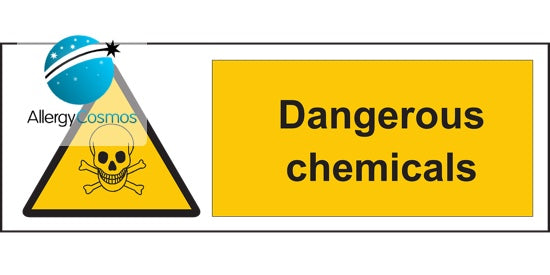Multiple Chemical Sensitivity (MCS) is a condition where various bodily symptoms arise from exposure to various everyday chemicals. So the questions are: how to manage multiple chemical sensitivity? MCS generally starts with one acute or chronic exposure to a specific chemical and then worsens to develop sensitivity to a broad range of chemicals.
As the name suggests, the irritants are multiple, which makes MCS hard to deal with. You might like to be aware of some of the common triggers of Multiple Chemical Sensitivity. These are:
- Perfumes and other scented products, such as candles
- Second-hand tobacco smoke
- Pesticides, wood preservatives
- House paints
- Regular household cleaning supplies
- Formaldehyde in new clothes, furniture and various other products
- Carbonless paper, inks, copying machines and laser printer toner
- Offgassing of new carpets
- Gas Stoves
The symptoms of Multiple Chemical Sensitivity are legion - and can include breathing difficulties, insomnia, memory loss, headache, abdominal pain, sore eyes, ears, nose and skin. Some people with MCS are sensitive also too loud noises, bright lights, and extremes of heat and cold. Multiple Chemical Sensitivity is most common among women and may start at any age, though it usually begins in late puberty to mid-life.
The only way to treat Multiple Chemical Sensitivity is by avoiding the chemicals that trigger it. An obvious approach is to look at air quality in your home or working environment. Removal of those materials associated with chemical exposures is an essential way of improving your air quality. Of course, there are many air purifiers on the market, used for different purposes. So what should you look out for if you want one to help with MCS?
The chemicals that trigger MCS can be present in both particle-bound and gaseous form. Therefore, your air purifier should offer both particle filtration and a gas phase filter. Only this two-fold approach will lead to a significant reduction in background levels of chemicals and improve your air quality. Many air purifier units have gas phase filters that are really too small to meet the needs of those with Multiple Chemical Sensitivity. Air cleaners with granular media, like granular activated carbon, provide the best kind of removal efficiencies for gaseous chemicals in the air.
Air cleaners that offer both granular activated carbon and chemically active alumina remove the widest range of chemicals. Note that the combination of granular activated carbon and zeolite, marketed by some companies for MCS, is not as good as you might expect - for there is no sound scientific evidence that zeolite has any special advantages in this context. It is also best if the air cleaner’s gas phase filter is protected by a high-efficiency pre-filter to prevent premature particle contamination which otherwise blocks the micropores of the gas filter, reducing the system’s efficiency and service life.
The IQAir GC Series was specially developed for the removal of gaseous chemicals. The wide spectrum gas phase filter of the IQAir GC MultiGas unit captures a wide array of gaseous chemicals and is ideal for areas with high concentrations of chemicals.




